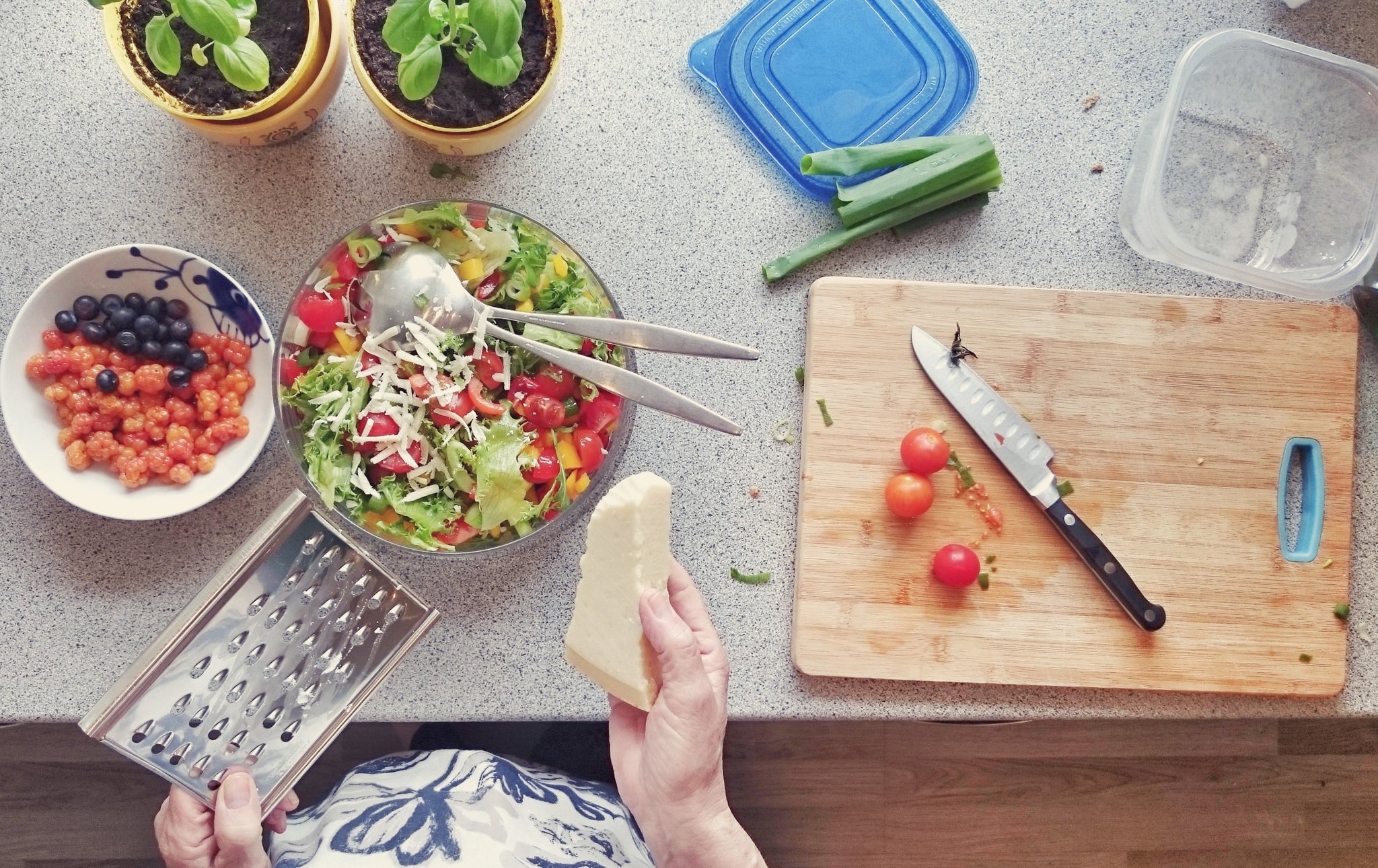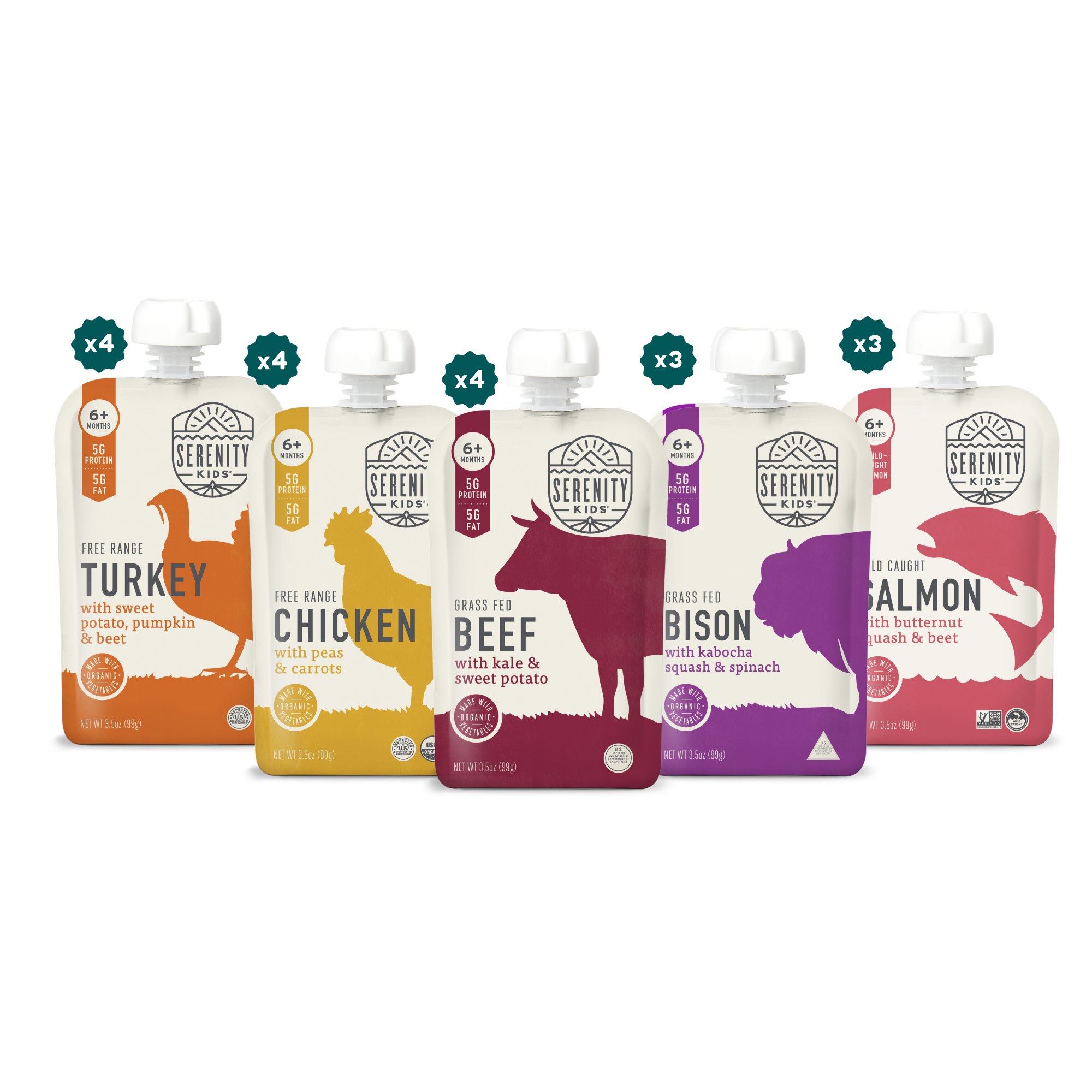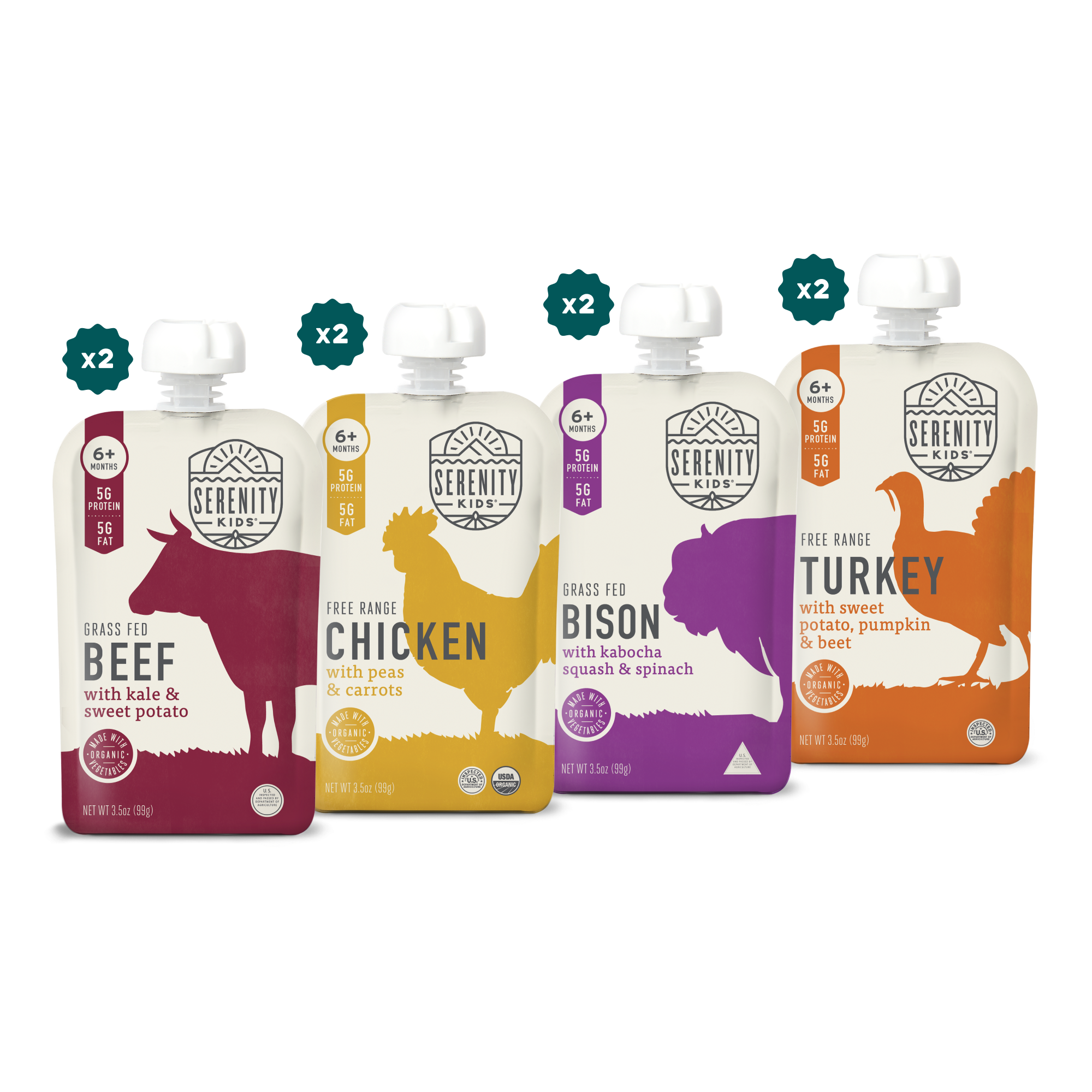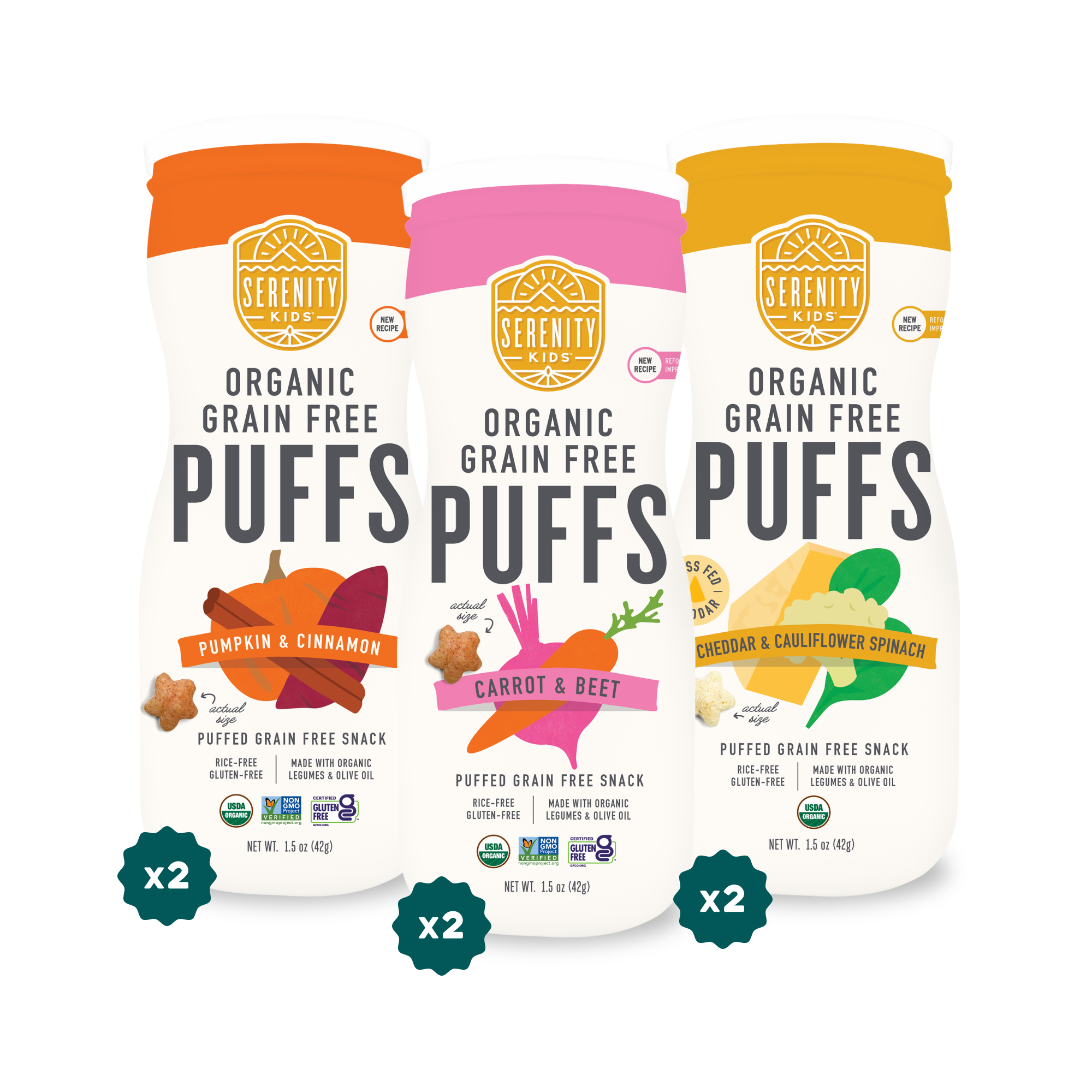TABLE OF CONTENTS
Written by Hillary Bennetts
May 31, 2024
Mom’s Realistic & Nutritious Weeklong Breastfeeding Meal Plan

Newborn bliss can be magical, but let's be honest – it can also be an exhausting whirlwind. Check out our blog post on Does Breastfeeding Make You Tired for more information on what’s going on with your body!
Between endless feedings and precious snuggles, whipping up elaborate meals might not be at the top of your priority list. This breastfeeding meal plan is designed with busy mamas in mind, offering delicious and nutritious options that are easy to prepare and reheat. Remember, this is just a guide – feel free to make adjustments for taste and convenience! Also, these breastfeeding meal plans are great for those moms who are pumping their breast milk as well. Check out this blog post on breastfeeding vs. pumping for more info.
Why Nutrition Matters While Breastfeeding
Breastfeeding is a nutritional powerhouse for your baby, but it's a two-way street! You need extra energy from food to create that amazing breast milk, and this also enables you to optimize your milk supply. Most mamas typically need 500 calories more than their pre-pregnancy caloric needs when exclusively breastfeeding (breast milk requires about 20 calories per ounce, and an exclusively breastfed infant takes in about 25 ounces per day).
But it's not just about nursing moms getting enough calories – specific nutrients are key for lactation and the overall health of breastfeeding moms. Here's why:
-
Nutrient Composition Matters: Your breast milk supply constantly adapts to reflect your dietary intake for many nutrients. Contrary to popular belief, breastmilk doesn’t automatically contain all of the nutrients your baby needs. For instance, if you're skimping on omega-3 rich foods, your milk will have lower levels of these essential fats that are crucial for baby's brain development.
-
Breastfeeding can deplete your nutrient reserves: Other nutrients are pulled from your own stores to ensure your baby gets what they need. For example, calcium will be taken from your bones to supply your baby with what they need. That means you’ll be left with lower bone density in order to help build your baby’s bones. This is why it's vital to eat enough calcium-rich foods to avoid depletion.
-
Nutrition has a large impact: At birth, a baby’s brain is only about 25% developed. It will double in size in the first year of life, and this development process is heavily dependent on adequate nutrition.
-
Certain nutrient deficiencies can have lasting effects: According to the American Academy of Pediatrics, “failure to provide key nutrients during this critical period of brain development may result in lifelong deficits in brain function despite subsequent nutrient repletion.”
Essential Nutrients for Breastfeeding Mamas
-
B Vitamins (including B12): B vitamins play a vital role in energy production, cell metabolism, and nervous system function for both you and your baby. While some B vitamins are synthesized in the gut, others, like B12, are obtained solely through dietary sources or supplementation. B12 supplementation is especially crucial if you are following a vegan diet to make sure your baby doesn't develop a B12 deficiency.
-
Vitamins A, C and D: Vitamins A, C and D are essential nutrients for both breastfeeding moms and their babies, supporting immune function, healthy vision, and strong bones for mom, while also aiding the baby's development in these areas through breast milk.
-
Choline: Crucial for your baby's brain and nervous system development, choline is also important for your memory and overall health. While it can be challenging to get enough choline through diet alone, incorporating eggs, liver, and certain fish can help.
-
Iodine: Essential for healthy thyroid function in both mom and baby, iodine supports growth and development. Seaweed, dairy products, and iodized salt are good sources.
-
Healthy Fats for Development and Satiety: Healthy fats, like those found in avocados, nuts, seeds, and fatty fish, are crucial for brain development in your baby and provide sustained energy for you. They also contribute to feelings of fullness, which can help you avoid unhealthy snacking.
Prenatal Vitamins and Supplementation
Prenatal vitamins are recommended during breastfeeding, but they might not provide enough of all the nutrients necessary for optimal growth and development, especially B12, choline, and iodine. It's important to discuss your individual needs with your healthcare provider to determine if additional supplementation is necessary.
Stay Hydrated and Replenish Electrolytes
Staying well hydrated is crucial for breastfeeding moms for milk production and overall health. Aim for 8-10 glasses of water daily. Herbal teas and water-rich fruits (like watermelon) also count! But it's not just about water – electrolytes, like sodium, potassium, and magnesium, are also lost through breast milk production and sweat. If plain water is boring, add fresh lemon juice, or cucumber slices to add some great flavor!
Ensure you're replenishing these minerals by incorporating electrolyte-rich foods like fruits (bananas, oranges), vegetables (spinach, sweet potatoes), and dairy products (milk, yogurt). Many breastfeeding mamas also find an electrolyte drink to be helpful for hydration, energy, and milk supply. Coconut water is a great choice, and we love LMNT (a great electrolyte brand with no bad stuff like sugar or artificial ingredients) mixed into a big bottle of water.
The Weeklong Breastfeeding Meal Plan (Easy on the Prep!)
Day 1 (Batch Cooking Day)
-
Breakfast: High-Protein Overnight Oats (with a grain-free twist): This option is a twist on a classic and can be made ahead for a grab-and-go breakfast. Simply combine chia seeds, nuts (almonds and walnuts are great choices), unsweetened almond or coconut milk, and a touch of natural sweetener (like maple syrup) in a jar or container. Let it sit in the refrigerator overnight, and in the morning, top it with fresh berries or a dollop of nut butter for added protein and healthy fats.
-
Lunch: Leftovers from dinner
-
Dinner: Big pot of chicken chili with bone broth, served with a side salad (freeze leftovers for lunches this week)
-
Snacks: Pre-cut veggies with hummus, yogurt with granola and fruit
Day 2 (Reheating and Repurposing)
-
Breakfast: Start your day strong with a Spinach and Feta Omelet! Sauté spinach for iron, add protein-rich feta, then whisk eggs with milk (dairy or dairy-free) for protein and calcium. Cook until set, fold, and enjoy with whole-grain toast for fiber. Don't forget a vitamin C boost - pair it with orange slices or lemon water to support your immune system!
-
Lunch: Leftover chili with chopped avocado and shredded cheese
-
Dinner: Grilled chicken breasts with Siete grain-free quesadillas (marinate ahead of time) with roasted vegetables (use leftover chicken for salads later in the week)
-
Snacks: Apple slices with almond butter or banana with peanut butter, grass-fed meat stick (Roam Sticks are perfect for a protein-rich snack!)
Day 3 (Leftovers and Creativity)
-
Breakfast: Frittatas are incredibly versatile and perfect for prepping ahead. Sauté your favorite vegetables (think peppers, onions, spinach) with some chopped herbs. In a separate bowl, whisk together eggs and your favorite type of milk (dairy-free options like almond or coconut milk work well here). Pour the egg mixture over the vegetables in a skillet and cook on the stovetop until set. You can even add cooked shredded chicken or nitrate-free sausage for extra protein. Frittatas can be eaten warm or at room temperature, making them perfect for a quick and nutritious breakfast.
-
Lunch: Chicken salad sandwich on grain-free bread (use leftover chicken)
-
Dinner: Salmon with roasted sweet potatoes and broccoli (frozen salmon filets are a lifesaver!)
-
Snacks: Cottage cheese with pineapple chunks, trail mix
Day 4 (Soup Day)
-
Breakfast: Power smoothie - blend protein powder, almond milk, banana, spinach or kale, berries, and optional extras like nut butter, chia seeds, and cinnamon.
-
Lunch: Leftover salmon with a side salad
-
Dinner: Lentil soup with ground beef, and chopped vegetables, served with a grain-free roll like one made with Simple Mills Artisan Bread Mix! (freeze leftovers for lunches)
-
Snacks: Greek yogurt with honey and grain-free granola, baby carrots with hummus
Day 5 (Leftovers and Quesadillas!)
-
Breakfast: Veggie scramble combining eggs with your favorite chopped veggies and leafy greens for a quick and nutritious breakfast. Add protein with cooked chicken or cheese for a complete and satisfying breakfast.
-
Lunch: Leftover lentil soup with a whole-grain roll
-
Dinner: Chicken quesadillas with leftover chicken, cheese, bell peppers, guacamole, and salsa. Serve with a dollop of sour cream and black beans for a complete meal.
-
Snacks: Hard-boiled eggs, pear slices with string cheese, Kind bars
Day 6 (Repurposing and Takeout)
-
Breakfast: Smoothie made with yogurt, frozen fruit, spinach, and a drizzle of nut butter (use leftover frozen fruit from Day 4)
-
Lunch: Chicken Caesar salad with leftover grilled chicken (make a big batch of dressing ahead of time)
-
Dinner: Takeout night! Give yourself a break and order healthy options like grilled fish or veggie stir-fry from a restaurant. Capello’s pizza was one of Serenity's favorites - gluten free with almond flour.
-
Snacks: Grain-free crackers with cheese
Day 7 (Breakfast for Dinner and Fridge Foraging)
-
Breakfast: Scrambled eggs with nitrate-free bacon or ham and avocado (a great use for leftover avocado!)
-
Lunch: Leftover Caesar salad
-
Dinner: Breakfast for dinner! Birch Benders grain free pancakes or waffle mix can be a fun and easy option. Top them with fruit and nuts for added nutrients.
-
Snacks: Any leftover fruits and veggies from the week, whole-wheat pretzels with hummus
Remember: This is just a sample plan! Feel free to swap ingredients, use frozen or pre-cut vegetables to save time, and adapt recipes to your preferences. Don't be afraid to get creative with leftovers!
Bonus Tip:
Stock your pantry with staples like canned beans, nuts and seeds, grain-free crackers and mixes, and canned tomatoes. These versatile ingredients can be easily incorporated into countless meal plans throughout the months.
Meal Planning and Preparation Strategies
Conquering the "what's for dinner?" dilemma is key to healthy eating during those busy breastfeeding days. Here are some effective meal-planning techniques:
-
Batch Cooking is Your BFF: Dedicate time (maybe while baby naps!) to prepping large batches of soups, stews, or chili. Portion them into containers for easy reheating throughout the week.
-
Prep Like a Pro: Wash, chop and store vegetables in advance. Pre-cook grains like brown rice or quinoa for quick and easy additions to meals.
-
Embrace the Freezer: Leftovers are your friends! Freeze portions of cooked meals for lunches or quick dinners later in the week. Frozen fruits and vegetables are lifesavers for smoothies or adding nutrients to dishes. Check out these great tips for making frozen veggies from our Clinical Nutritionist friend Kelly LeVeque.
-
Don't forget to accept help when offered: Many times people offer to help, but don't know what you need. Commit to asking for or accepting help from your community, friends, and family - whether it's cooking meals for you, watching the baby while you do meal prep for the coming week, or going grocery shopping for you. Don’t be afraid to ask for exactly what you want. Most people love guidance, so send a specific recipe that you’d like someone to make for you!
-
Crockpot meals are a lifesaver: If your partner is off to work, let them help put together an easy meal in the crockpot that will be ready to go when they get home!
Listening to Hunger and Fullness Cues
Breastfeeding moms are often eating while holding or feeding a baby. It can be hard to find a quiet moment for yourself, so working on mindful eating practices can help keep busy breastfeeding moms grounded while they eat. Here are a few tips:
-
Slow Down and Savor: Eat mindfully, trying to chew thoroughly and savor each bite instead of rushing through meals.
-
Tune into Your Body: Notice your hunger signals – are you feeling lightheaded, irritable, or experiencing stomach growls? Pay attention to your fullness cues as well – feeling comfortably satisfied is the goal, but eating quickly can leave you feeling uncomfortable.
-
Small and Frequent Meals: Aim for smaller, more frequent meals and snacks throughout the day to keep your blood sugar and energy balanced.
Seeking Support from Healthcare Professionals
Sometimes, navigating a healthy diet during breastfeeding requires additional guidance. Don't hesitate to seek support from qualified professionals if you’re struggling with breastfeeding - help is available!
-
Registered Dietitian (RDs): A Registered Dietitian (RD) is a nutrition expert and can create a personalized meal plan that addresses your specific needs and preferences, especially if you have any dietary restrictions.
-
Lactation Consultants: Lactation consultants can provide guidance on breastfeeding techniques and practices.
-
Your Healthcare Provider: Discuss any questions or concerns you have about your baby’s growth during regular checkups.
Conclusion
Throughout this article, we've emphasized the critical role that nutrition plays for breastfeeding mothers during this incredible journey. By prioritizing a healthy breastfeeding diet rich in protein foods and in essential nutrients, you're not just nourishing yourself – you're providing the building blocks for your baby's optimal growth and development.
Remember, Mama, You Are Not Alone!
As a breastfeeding mother, your well-being is directly linked to your baby's health. Your health is worth it for you, but taking care of yourself is not a luxury, it's necessary to keep your baby nourished too. By embracing these tips and meal plans, and prioritizing your nutrition, you'll be well on your way to a joyful and healthy breastfeeding experience for you and your little one.
So, fuel your body with nutrient-dense foods, listen to your body's cues, and don't be afraid to seek support. And remember, before long you'll be trying to transition baby from breast milk to solid food, with Serenity Kids providing you with lots of organic, nutritious baby food options,
You've got this, mama!
You Might Also Like
· 1 min read · Recipes
· 7 min read · Education














































